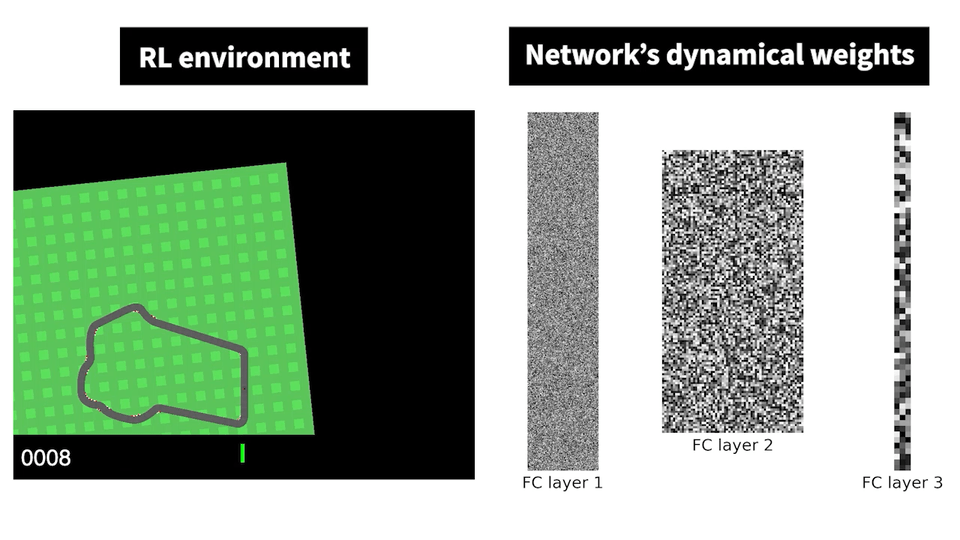Meta-Learning through Hebbian Plasticity in Random Networks
Lifelong learning and adaptability are two defining aspects of biological agents. Modern reinforcement learning (RL) approaches have shown significant progress in solving complex tasks, however once training is concluded, the found solutions are typically static and incapable of adapting to new information or perturbations. While it is still not completely understood how biological brains learn and adapt so efficiently from experience, it is believed that synaptic plasticity plays a prominent role in this process. Inspired by this biological mechanism, we propose a search method that, instead of optimizing the weight parameters of neural networks directly, only searches for synapse-specific Hebbian learning rules that allow the network to continuously self-organize its weights during the lifetime of the agent. We demonstrate our approach on several reinforcement learning tasks with different sensory modalities and more than 450K trainable plasticity parameters. We find that starting from completely random weights, the discovered Hebbian rules enable an agent to navigate a dynamical 2D-pixel environment; likewise they allow a simulated 3D quadrupedal robot to learn how to walk while adapting to morphological damage not seen during training and in the absence of any explicit reward or error signal in less than 100 timesteps. Code is available at https://github.com/enajx/HebbianMetaLearning.
PDF Abstract NeurIPS 2020 PDF NeurIPS 2020 Abstract

